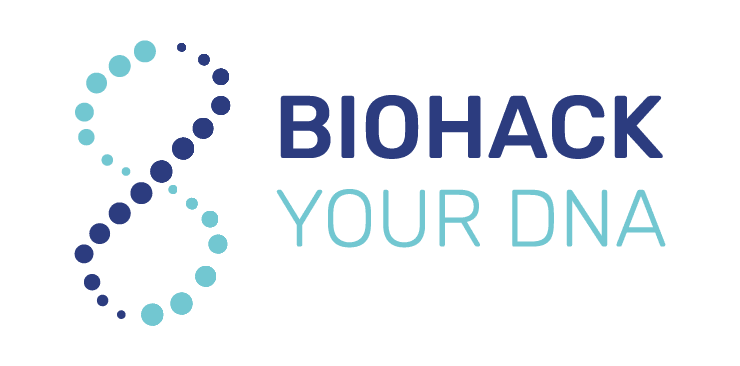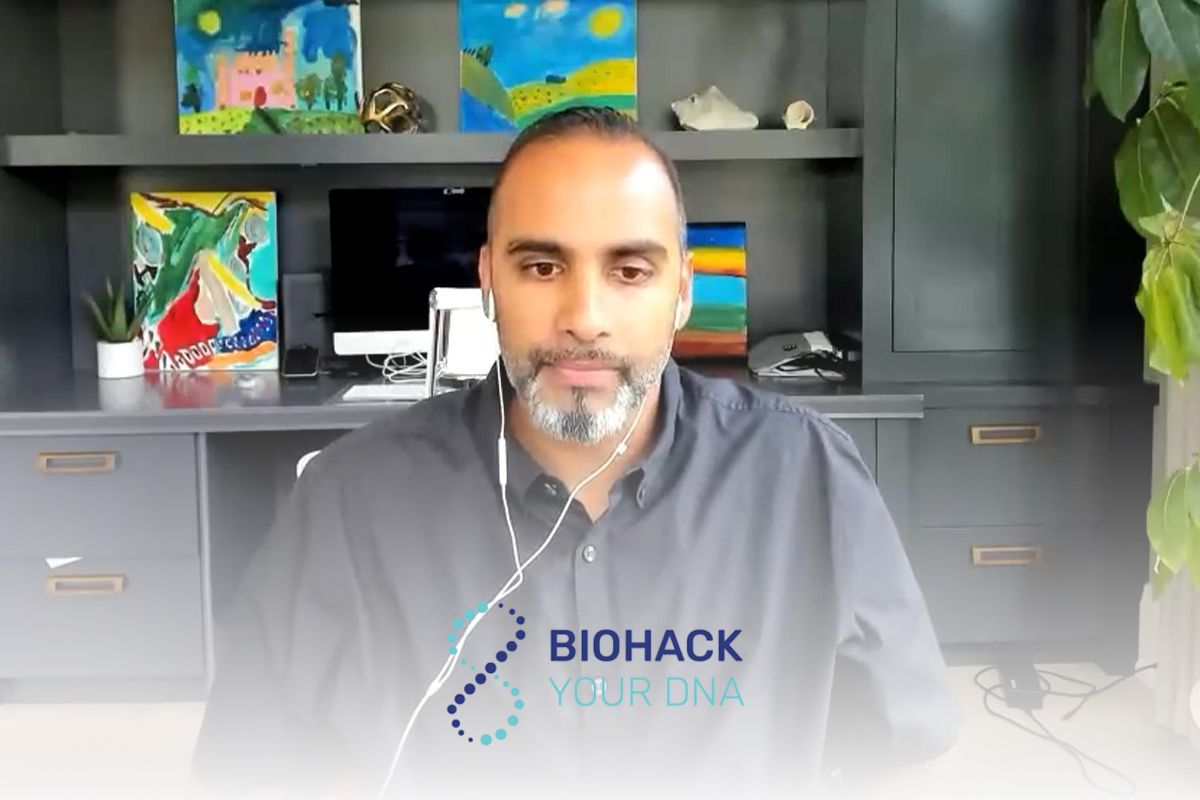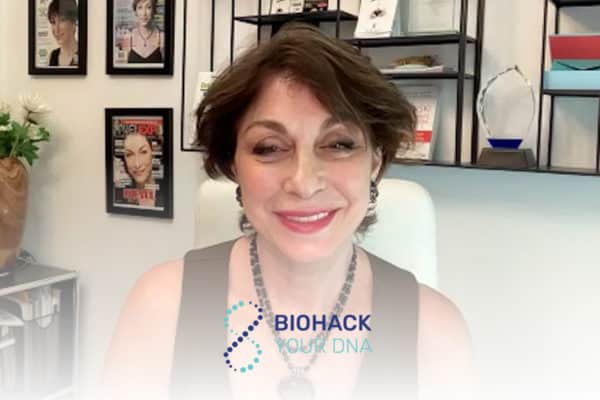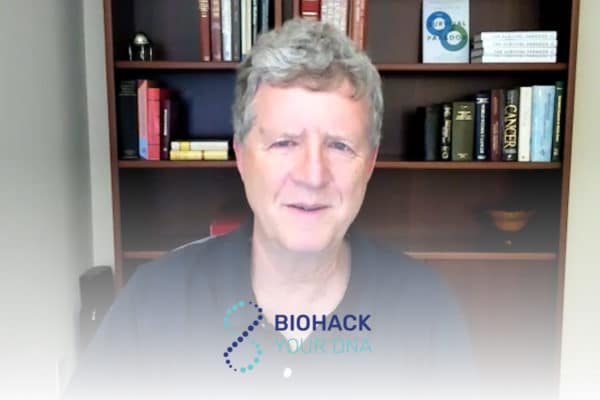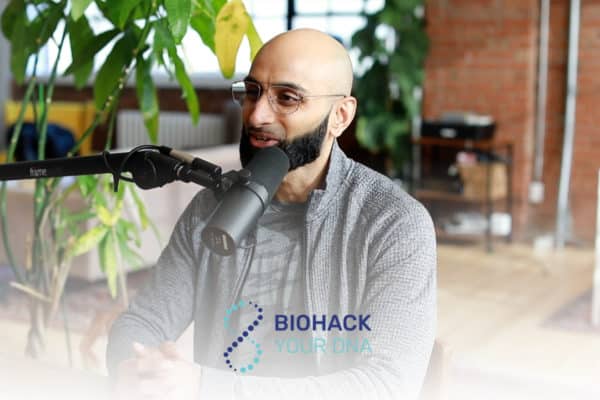Join the discussion below

Harris Khan holds a Bachelor’s of Science in Honours Biomedical Sciences from the University of Waterloo. After completing his undergraduate studies, he pursued post graduate studies in Pharmaceutical Research and Development, before gaining employment at Apotex, Canada’s largest generic pharmaceutical company, in the Formulations Development department. Harris was a key... Read More
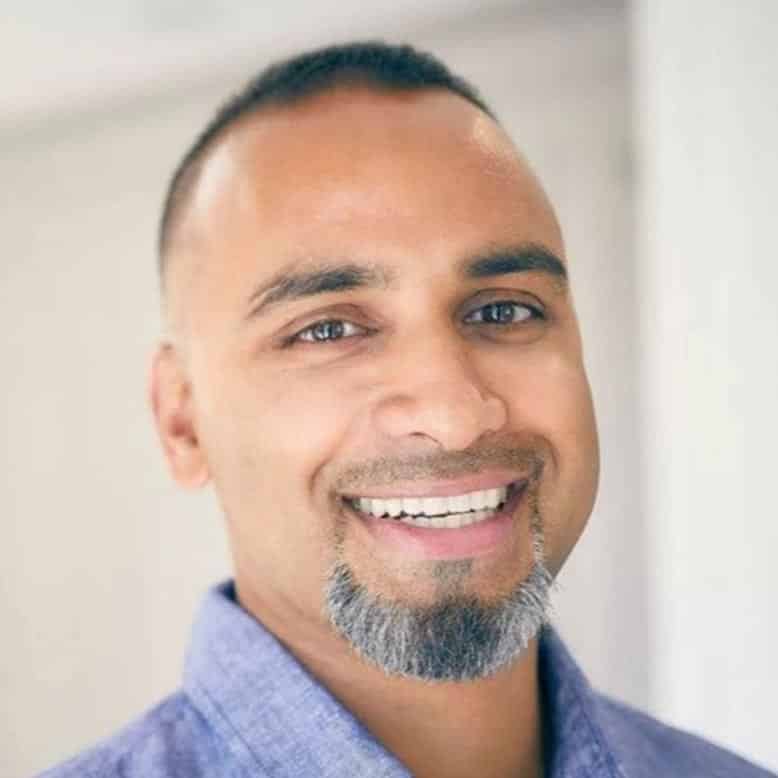
In his more than 20-year career as a business owner and entrepreneur, Saud Juman has worked through every possible business challenge in a variety of industries — from designing unique products, developing new markets, creating corporate culture plans, recruiting and building a world class team, navigating through significant growth, change,... Read More
- “I’m a healthtech entrepreneur. I use what I learned from this intelligent DNA test every day to win in my health and business.”
- The impact of genes on getting the right kind of sleep, and how genes influence your people skills in the workplace
Related Topics
Aging, Athletics, Bdnf, BioHacking, Blue Light Blocking Glasses, Caffeine, Circadian Rhythms, Digital Screens, Dna Testing, Entrepreneur, Fitness, Genetic Testing, Health, Heart Rate Variability, Identity, Lumens, Mental Strength, Neuronal Health, Sleep, Sleep Deprivation, Sleep Hygiene, Sleep Score, Stress Management, Stretching, Temperature Control, TestosteroneHarris Khan
Hello, everyone, Harris Khan here with the DNA Company. And today I have a special guest, a very exciting person here that I’m gonna be speaking with to today. I’m gonna introduce you guys to Saud Juman. I’ve known Saud Juman for many years personally, and he was one of our early adopters. So he’s been exposed to the work that we’ve been doing for a very long time. Saud, it’s a pleasure to have you here today.
Saud Juman
Thanks Harris, pleasure to be here.
Harris Khan
Great, Saud, so I wanna start off by introducing our listeners to yourself, kinda what you do. Your background, your lifestyle, and why you decided to take the plunge with genetic testing?
Saud Juman
Okay, I guess professionally, I’m a tech entrepreneur. Previous to the current company I have right now, which is focused on logistics and supply chain software. Prior to that, about three years ago, I had a healthcare software company that I ran for almost 18 years. Health has always been extremely important to me. It’s always been a journey to try to understand my health and decode my health more and more, and do the things that will uniquely benefit me. It’s been a journey. In my early days it was more focused on athletics and exercise, then nutrition came into the mix. And then probably from let’s say like 2017 or so onwards, I started to try to tailor my approach to my health by doing things like genetic testing.
Harris Khan
Great, great, great. And beyond that, I know you’re a big basketball fan and health and sports has always been kind of your focus. Tell us a little bit more about your athletics and how you keep yourself fit on a daily basis.
Saud Juman
Yeah, I mean, basketball was my first love in life, more than anything else. So I grew up playing basketball. I played at the high school level, I played at the college level. And then parallel to that while I was playing basketball, growing up, I had started to pursue martial arts and that’s been a constant with me now. So martial arts I’ve been actively training in for probably 35 years. And I’m finding the more that I adopt and approach to holistic health. It is possible to not just do some of the things that I used to do when I was younger. I’m in my mid 40s now, but to do things that I wasn’t able to do even when I was younger as well, right? So even that whole concept of I forget who said it. Your chronological age and your biological age, really, you can actually create a pretty significant delta and not to chase the fountain of youth, but just for somebody like me to chase mobility, freedom of movement, the ability to play with my children, and the ability to compete athletically at levels that I didn’t think I’d be able to at this age.
Harris Khan
That’s wonderful, and one of the things we had learned about when we went through your profile was you had a predisposition towards more androgen dominance, really holding onto the androgen. So things like testosterone, dihydrotestosterone. And so one of the things that really works in your favor as a male are higher levels of testosterone than the average human and your ability as you get older to use more of that testosterone in your body will depend on some of the changes that you’re doing in your workout. So adopting a more heavier lifting, workout for example, or even if you’re throwing people, you’re throwing heavier people, it’s actually gonna drive some of the release of testosterone that’s normally bound to things like sex hormone-binding globulin, and allow your body to use some of that free testosterone is one of the things we did here at the DNA Companies.
We learned is that for men, their most important mortality factor as they get older are levels of testosterone. So they did a huge study. Thousands of men were tested and the common thing they found as these men approached their death was they had low testosterone levels. So when we instruct folks who are really investing their health, and the athletics males, especially, how do you not rely on having to take external testosterone? We don’t want you to be going out there taking testosterone replacement therapy or stuff, but you can actually access more of your own internal testosterone. And that contributes, as you said to your biological versus chronological aging. There’s guys out there who are 70, 80 plus and dead lifting 500 pounds, ’cause they’ve been able to understand how that delta works. Wonderful, I wanna come back to, we talked about a little bit of physical strength. Another thing I wanna talk to you about is mental strength. Talk to me about as an entrepreneur, what are the things that make you tick? What are the things that really stand out for you when you’re dealing with the stresses or with the weight of managing a company?
Saud Juman
Yeah, I mean, that’s been an evolution, right? So I think the biggest thing that’s helped me is having the privilege to be able to learn from my mistakes over the years. So in previous chapters of my entrepreneurial career, I would say, I really abused myself in terms of the amount of caffeine I drank, the lack of sleep. And I guess connecting my personal identity to a business. Those three things together could be very, very, very toxic, right? So there were times in my entrepreneurial life where I was drinking four doppio espresso a day. That’s a double espresso from Starbucks, depending on where I happen to be in the United States at that time. Sleeping maybe three and a half, four hours a night, right? And feeling like the success or failure of the business was an indication of me personally.
This is something that probably a lot of entrepreneurs have done to varying degrees. And for me, it really deteriorated my health. And even like if one were to look at me back then I would probably look athletically healthy, right? But my mobility, I’d have weird things happen sometimes like a weird cough but I wasn’t sick. I’d be very, very anxious. I’d be very short of patience. All those types of things, right? So what kinda helped me first, was the realization of the identity thing. Me realizing that, hey, the business is just a business, right? It’s going to be gone one day, right? And I’m separate from the business. So that’s a little bit of work that I continue to remind myself, some work that I continue to do with my psychotherapist and those types of things. Now with regards to health choices as it relates to my mindset mentally these days, post exit from my last company, I really realized the importance of sleep.
Like it’s huge. I can’t believe that I would get on stages and include in my speeches how little I would sleep a night and still be able to do stuff. So being able to sleep well and figuring out the amount of sleep I need, it’s weird for me. It’s like I’ve realize that if I sleep eight plus hours, I feel really tired the following day. Like I feel very groggy, tired, and thing last for the whole day. But if I sleep six to seven hours, in the right way at the right time and then with the consistent bedtime and wake time and all of that type of stuff, it’s great. So like sleep is big for me. Sleep hygiene leading up to sleep, temperature control, right? I mean, I have this bed that is temperature control. I have an app, it cools the bed, like all the stuff, right? My entire bedroom has lots of electrical tape and all the little things with little lights. So the amount of lumens is eliminated, right? So it’s completely–
Harris Khan
Perfect.
Saud Juman
So all of those things with sleep is very, very protected because I see the benefit in terms of patience, emotional resilience, heart rate variability, right? For those that are tracking that stuff, the right sleep at the right time at the right way, your HRV goes all the way up, right? And also, I mean, there’s no magic bullet for everyone. Different things that I do help me sleep so much better. For example, when I remember to stretch before I go to bed, I’m a martial artist, it doesn’t have to be a crazy stretch. It could be a basic stretch for like five minutes. My sleep score the next day, so much better, right? When I take a little ball and I do trigger point stuff on me and this in specific areas that are unique for me. Sleep score goes up. When I wear my $10 pair of blue light blocking glasses, from about 6:00 pm or so for me onwards, when I remember to do that, big impact on my sleep score, right? When I forget some of that stuff, it’s a disaster.
Harris Khan
And you know what? And this is what we talk about when we are telling people, when we talk about the things that are mind blowing, right? Understanding how exactly everything you describe, we relay it back to the genes. Now there’s one gene that we spoke to you about. You may have remembered it was BDNF. BDNF was a big gene in your profile because brain drag neurotrophic factor is what influences neuron or let’s say your brain cells are called neurons and neuronal health. And one of the hallmarks or many of the hallmarks we see with people with lower levels of BDNF, which you were predisposed to were, the relationship you had with sleep and your improvement in falling asleep after doing stretching.
Stretching induces androgen receptors. And androgen receptors induce BDNF production. And so your hack of stretching right before you went to bed actually induced receptors in your body, which allowed circadian rhythms to become regulated in your body, right? Now, things you mentioned, like, for example, the sleep hygiene of getting off the phone, not using the phone, keeping the darkness happening. It comes down to your blue light glasses, protect your BDF levels from being influenced and people that normally produce lower levels of BDNF are more affected by digital screens. And so when we talk, sleep hygiene has always been a huge part of what we instruct. And we always talk about food.
Hey, most of sleep hygiene is free. Like, turn the thermos hat down, get your blocking curtains, get a night mask. Use a noise machine if you need to. Many of these things help regulate circadian rhythms, which are so important for people which are influenced by BDNF levels. So it’s just amazing to see how the genetics inform the outcome. And then the different decisions we make can actually optimize what are so called otherwise suboptimal outcomes in your genes. So it’s incredible to hear that you’re hacking your dreams in that manner. I remember once we’ve had a few conversations about this personally. As an entrepreneur, you realized fairly quickly that you know where your strengths are. Your business development guy, and you’re out there, you’re doing things. And one of the things that you felt were done better by others was people management. Talk to us about that. Talk to us about why that was important for you to identify that and quickly address that as you grew your business.
Saud Juman
Yeah, maybe it’s just getting older and realizing what your strengths are and what your weaknesses are. But there’re certain parts when I reflected back on my last journey, which again, lasted for almost two decades. I asked myself, do I wanna do this again? And when I realized, yes, I wanna try to do this again. Then I had to be honest with my myself and say, well. And again, it should be noted like I do have the privilege and luxury of thinking in this way at this point to ask myself things such as, what do I find fun in entrepreneurship? Where as before I probably didn’t have that, where I felt like I’ve gotta master everything, I’ve gotta be good at everything. This is part of our entrepreneurship.
Let me just bite the bullet and do it. But this time around, I kinda took stock and said, “Well, what am I good at? What are the few things that I’m good at? What do I find fun?” And it was client success, sales, marketing, revenue generation, that type of stuff. But on the flip side, operations and people management doesn’t light me up, right? I’m probably not good at it. And I did a podcast last week with a friend, he’s writing another book on employee retention, right? And he was saying, “What’s something that I’m doing different now that I didn’t do at my last company.” And I think at this company, for the employees that we’re hiring, I let them know even before they’re hired, I said, look, “One day you’re gonna have a manager, right?”
Harris Khan
Mm-hmm.
Saud Juman
“And she or he’s gonna be a great manager, but until then, ’cause we’re in startup mode, you’re stuck with me, and I don’t enjoy managing people. I’m not particularly good at it, but you’re gonna have to deal with me, right?”
Harris Khan
Yeah.
Saud Juman
And I’m a very driven person or whatever else, but also maybe I lack all of the empathetic skills that a manager might need to have, right?
Harris Khan
Yeah.
Saud Juman
So I find that, that works right now because they get a laugh out of it and that kinda sets the expectations and soften things a little bit for them to know that, hey, I’m trying my best, but that’s not my forte.
Harris Khan
Yeah.
Saud Juman
Yeah.
Harris Khan
It’s hilarious that you say that, because it’s your genetic makeup literally speaks to you as a person. So you mentioned a keyword there. Maybe I don’t display empathy as people come to expect it. And literally you and I we carry the same genetic profile here. We are folks who are logically and analytically driven. So we evaluate things that happen, whether they’re stress or negative or problems like it’s happened, I’m not gonna sit here crying about the spilled milk. I gotta figure out the fastest way to solve it. So sometimes we joke about this. An employee comes in and says, “Oh, my dog died today.” And you’re like, “Oh, I’m so sorry for your loss, but can we talk about tomorrow’s meeting quickly?” ‘Cause you know what I mean? Like were able to quickly logically move forward. And people may say, “Well, oh so and so lacks.” It’s not that we lack empathy, it’s that we process events differently to the average person and differently to what people may expect one should show empathy about. And so the superpowers were very logical about how we need to get things done. And the challenge then as you realize very quickly is that, hey, this is how I work.
And so you’ve set an expectation that you’re gonna work this way. So it’s not that you don’t expect empathy from me, just don’t expect the empathy that perhaps you’ve seen it because I work in this way. I love you and I care for you, but maybe not in the way people may come to expect. And it speaks through your genetic profile. And I think the other thing you found was you’re probably very regimented person. You like your days to be mapped out. Like you need to know what you’re doing at 9, 10, 11, 12:00 pm. Because as an entrepreneur, as a CEO, one thing that gets us is decision fatigue.
Like we don’t wanna make a decision about every single thing. And because of our genetic profile, you and I again share the same thing here. We’re more prone to decision fatigue than the average person. So we need to make as less decisions as possible so our brain is available for the big decisions. Like you probably hate having to decide what to eat for dinner and what eat for lunch and what to wear today and what. Like, you don’t care. Like just have it laid out for me hell and I’ll do it. It’s one less thing I have to worry about. I don’t need to micromanage in these decisions ’cause it’s eating up my brain space. So how do–
Saud Juman
I do have everything mapped out actually, yeah. And there’s a good saying that I read a long time ago. Discipline leads to freedom, right? So not just in work, but nutrition. At this point, I have every meal mapped out right down to the macros, to everything else. So I just know that I don’t have to decide on that. That fuel is there.
Harris Khan
Yeah, exactly, yeah. And it’s like one less thing that you have to worry about. So now you’re putting your brain to growing that business, which is really important for you. So that’s fantastic. Now, how did you sort of adjust your diet? Like many of us, we didn’t grow up in the traditional Caucasian Western diet. We grew up with our own diets from our cultures. How did you sort of come to adjust that to work in your favor rather than work against you?
Saud Juman
Yeah, that probably started my late 20s. One thing that I’ve realized about myself that I don’t think is the norm for most people is when I realize that something is going to benefit me such as improve my health, I’m just going to do it.
Harris Khan
Yep.
Saud Juman
And I do it for good. Like it doesn’t go back or forth, right? So in terms of diet, I would say I had the desire to eat healthier and healthier and more nutritious. The concept of food being experience or fuel is something that I read many years ago through some literature, by a guy called Mark Verstegen a very well known trainer in the pros. And when I read fuel, I thought, yeah, that is kinda how I view food. Like I don’t really find food as a big experience. I know some people, it’s a big experience the way it looks and in a certain setting and all this other stuff and you mean it’s gotta be truly exceptional setting, and everything for me to be at class, this is an experience. An example would be eating pizza in Naples, Italy, right? Now, I did that with my wife. That was an experience, right?
Harris Khan
Yeah.
Saud Juman
But ordinarily like 99.9% of the time, it’s fuel, right? It’s like I look at a whole chicken and I’m like, “No, I need the breast because I know that six ounces of that is gonna get me 52.3 grams of protein. Like that’s what I’m looking at. I’m looking at, where am I gonna get the 52 grams of protein.
Harris Khan
Right.
Saud Juman
But I think the biggest thing that I’ve learned from is over the past year, I have taken some of what I learned from you guys. And as part of my annual physical, where I go, I have a nutritionist, right? And the past year I’ve worked with her and that’s the first time in my life I’ve worked this actively with a nutritionist. And she’s a nutritionist that primarily works with athletes. And I’ve learned the goal wasn’t really to lose weight, right?
Harris Khan
Yeah.
Saud Juman
But I’ve lost probably in the last year, about 25 pounds, right? I lost 25 pounds, but my strength has stayed the same, right? And I learned different things about, it’s not about the weight reduction, it’s about body recomposition, right? So I actually don’t care so much about the 25 pounds that I’ve lost. I care about the makeup–
Harris Khan
The muscle that you put on, yeah.
Saud Juman
Of whatever I have, right?
Harris Khan
Right.
Saud Juman
And how do I fuel in the right way to get the performance goals that I want and the sleep goals that I want as well, right? So those are kinda the two factors when it comes down to nutrition. And naturally, I’m eating healthier, right? I think my diet for the most part is really healthy. Now it’s just a matter of like, is that thing at the right timing or not, right? A lot of it is like the timing of what I eat. Like for example, if I consume collagen, right? I know that for me, I’m not consuming collagen for like the beauty of my skin. I’m consuming collagen, maybe 45 minutes before I train, right?
Harris Khan
Right.
Saud Juman
And I gotta make sure I have some vitamin C with it, so it absorbs into me a little better. So then I could perform even better.
Harris Khan
Yeah, it’s fascinating stuff. Once you start getting really personalized, and that’s what we always tell people, it’s like, don’t follow what Joe Schmoe and Instagram is telling you in terms of what your work workout is. You need to go out there and tinker with your body and figure out what works for you. ‘Cause personalization is the key. If you don’t know how your body functions, how are you gonna achieve what you want with your body without knowing exactly what steps you need to take.
Saud Juman
100%, like there’s a big trend with fasting, right? Intermittent fasting, that stuff outside of one month, a year where I’m obligated to fast. I mean, intermittent fasting does not work with me, right? Because I work out in the morning. So I would be just wasting my workouts if I’m intermittent fasting while I’m lifting weights or sprinting at the local track or something like that. And then I’m done. And then I’m like, well, it’s three more hours until I eat. So I’m not gonna consume any protein or anything else or replenish myself with some carbs or whatever it is, right?
Harris Khan
Yeah.
Saud Juman
It wouldn’t work, I tried it and I just felt sick and depleted.
Harris Khan
Yeah, and it speaks exactly to your genomic profile is what we tell people, like intermittent fasting is great. Maybe not so great for you. Ketogenic might be great, but it’s not great for you, or *pale might be great. And people have this thing, where they get confused like, oh I have to stick within the boundaries and rules of the intermittent fasting. Well, if you’re working out, you’re burning through calories, you’re burning through energy. You need to replace that to get muscles. You don’t just work out and not eat and expect to have, it’s not gonna work that way. It’s just common physical science. And I think people get really lost in sort of following the facts and they lose sight of what the big picture is. So that’s a really great point. So Saud, now for others who are listening, there’s gonna be a ton of people listening here obviously, why would you recommend someone go and do a genomic test both from sort of you as the entrepreneur and you as the individual caring about your health? Why do you think it would be important for someone to do a genomic test?
Saud Juman
I think it’s data, right? The problem these days is there’s a lot of noise out there when it comes to, I guess, invasive health. Invasive meaning like getting data about yourself in a unique way, right? So this is not one of them, right? This is not noise. This is like legitimate data that all of us, assuming if you had the time and the means and everything else, you should get. And I will say that no data point is the be all and end all. I think it’s the way I kinda view things. It’s kind of assembling your dream team of people, your dream team of data points, you bring it all together, and then trusting that you’re intelligent enough to kinda put the plant together in place, right? So for me, it was genetic testing from your company. That was a big block of data where I was like, oh wow. Like there things I learned that I forget what the genome is called, but the one for concussions, right?
Harris Khan
Yep, yeah, it’s a BDNF one.
Saud Juman
BDNF, right, I never knew that, I was so predisposed to that and I never knew that there were different types of concussions, right? I’m a martial artist, right? I have rarely in 35 years ever gotten punched or kicked or struck in the head or the face, because I’m just, I don’t know, maybe something inside of me where it’s like, that’s not happening, right?
Harris Khan
Yeah.
Saud Juman
So there’s a concussion that can come that way. I’ve never knocked on wood. I’ve never suffered from a physical concussion, right? I also learned there are emotional concussions, right? That’s a huge one. And going back to entrepreneurship, that answered a lot of questions. Like wow, when I was super stressed, right? When you have a long entrepreneur real career, people are gonna say bad things about you. You’ll receive the odd legal letter from somebody threatening this, that or the other thing. I remember the first time something like that happened, I literally felt like I got kicked in the head. I just shut down.
Harris Khan
Shell shocked–
Saud Juman
I had all the psychosomatic symptoms that would come up. I felt sick, I felt nauseous. I felt everything, right? And then I’ve learned from you guys, there were chemical concussions. If I walk through the perfume section at the bay, a department store or something like that, I would leave feeling in a daze. I’m like, oh my God, right? Like just that the sense would kinda set me up. So when I learned that I was like, okay, that makes sense. So then I would regulate my stress differently. The heat therapy thing that I learned from you guys which is–
Harris Khan
Sauna usage, yeah.
Saud Juman
Sauna usage, I have a steam room and whatever else, like getting hot enough a few times a week where even after you towel off and you take a shower, everything else. You’re still sweating a little bit. That makes me feel great, right?
Harris Khan
Yes, and the crazy thing was elevating your BDNF levels increases your elevation mood. Like you feel great after workout or after the sauna usage literally because your BDNF level are rising.
Saud Juman
Or even the type of workout though, like getting your heart rate at a certain BPM for a certain amount of time. Based on the sports I’ve chosen to do, I can’t always do that type of longer training, but when I happen to do that, I’m like, oh, that feels great. But now I know because I don’t do that endurance type of training, I’ll do the heat stuff a little bit more, feel great, right? So to answer your question again, it’s data, you get the right data about your genomes, about your nutrition, you take all the injuries you’ve had in the past into consideration and you start assembling what the best plan and blueprint is for you.
Harris Khan
Okay, that’s awesome, man. Look, I appreciate your time. And I know you’re a busy guy and thank you for taking the time out here and sharing your experience with us and everyone who is gonna be listening. I’m sure there’s entrepreneurs out there who are like, yeah, I’m just like Suad and so now I know what I need to do. I need to hire the guy to manage the operations for my employees. And I need to work out a certain way. I need to get a sauna room and so I hope people will benefit from the knowledge and experience you’ve shared with us here today so that people start optimizing health. So thanks again, Saud. Really appreciate it.
Saud Juman
Yeah, thank you. And thank you guys for having this genome test.
Harris Khan
Yeah, absolutely, thanks again, everyone. Have a great day.
Downloads
